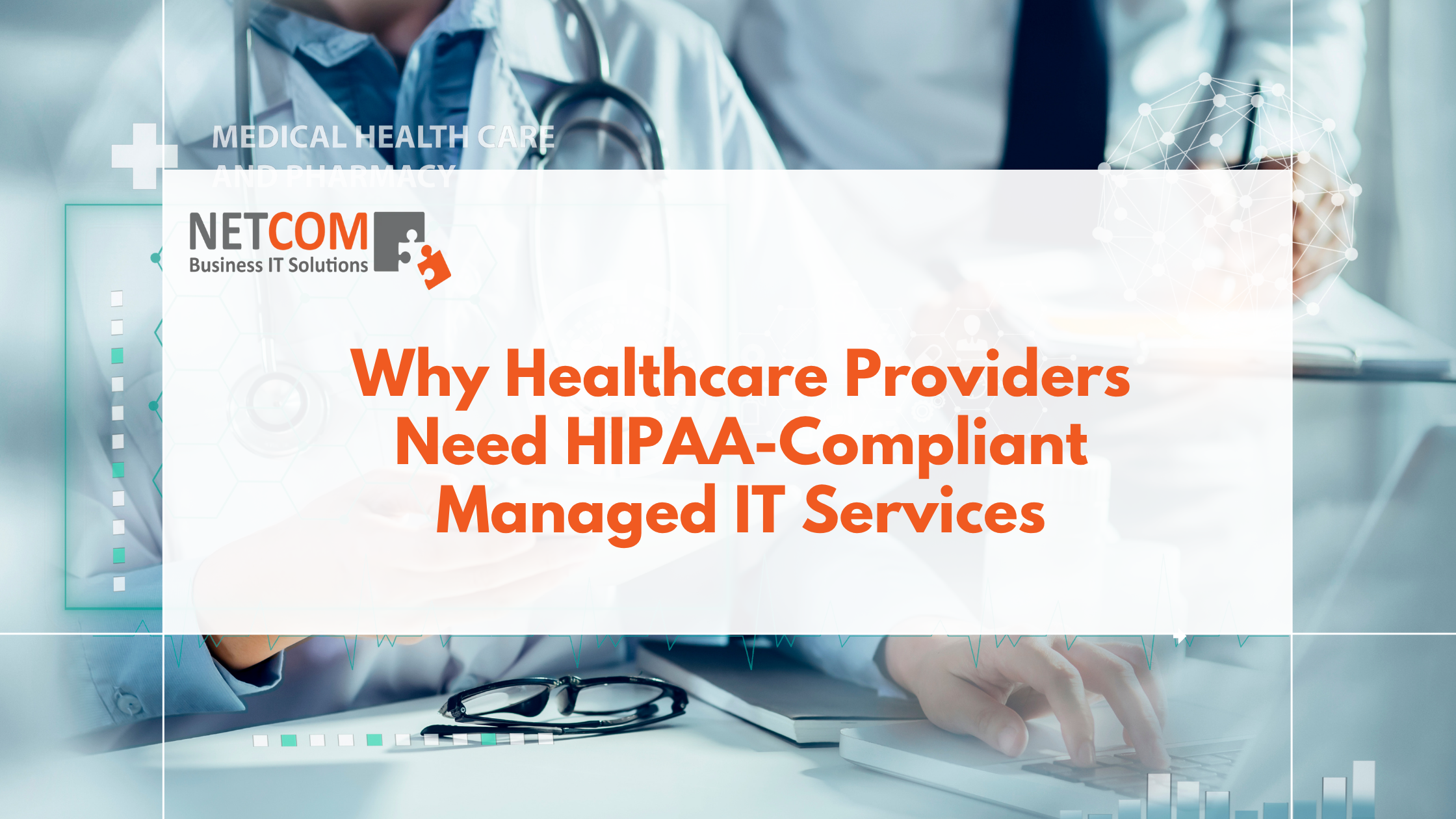If your clinic’s computers are down, care stalls. It’s that simple. From e-prescriptions to imaging, telehealth to billing, everything now runs through technology. One stolen laptop or a crafty phishing email can undo years of patient trust. HIPAA-compliant managed IT services were born in the US, but their security discipline is useful anywhere.
Our sector operates under the Privacy Act and APPs, yet many practices collaborate with global platforms that expect HIPAA-level controls. Patients don’t care which acronym keeps them safe—only that their information is treated with the seriousness it deserves.
What are HIPAA-Compliant Managed IT Services?
HIPAA is a health-privacy model that compels providers and their vendors to safeguard electronic health data with certain administrative, physical, and technical security measures. A managed IT partner that works to HIPAA standards doesn’t just “look after the computers.” They accept defined responsibilities for security, document what they do, and design environments where identity and access are controlled, data is encrypted at rest and in transit, and staff receive practical training.
They’ll also sign a Business Associate Agreement when needed, making clear who does what if an incident occurs. Since the law is American, the behaviours, risk assessment, audit-ready records, and repeatable security processes translate perfectly to all American healthcare.
What Is the Role of Managed IT in Contemporary Healthcare?

This would be digital in terms of the practice, but still might have magazines in the waiting room. GPs review results in the EMR, specialists pull images from the cloud, and physiotherapists chart on tablets between consults. A good managed IT team keeps that engine humming. They monitor networks and endpoints so problems are caught before they bite. They coordinate patches without derailing clinics .They do backup testing, since there is no worse than a downtime to find out that the backup was never restorable. And when anything does come, as it sometimes does, they know clinical urgency. The difference between a minor delay and a day of cancelled appointments often comes down to preparation and response.
5 Reasons Healthcare Providers Need HIPAA-Compliant Managed IT Services
It is worth having a glimpse of the reasons why support that is aligned with HIPAA is a game-changer before you determine how to resource IT.
Cyber Risk Is On The Increase, And The Regulators Are Monitoring
Clinic information is valuable, and hackers are aware of the fact that clinics are busy centers, and phishing may find its way in. A HIPAA-aligned provider builds layered controls and keeps evidence: logs, policies, training records, and incident playbooks. That discipline helps you meet American privacy obligations and satisfy overseas partners who expect HIPAA-grade assurance.
New Threats Outpace Small Internal Teams
Weaknesses are announced weekly in operating systems, browsers, add-ons, and clinical applications. Keeping up is a full-time job. This is the world of managed security teams: they patch fast, continue to monitor alerts, and set defences in such a way that known problems do not make the headlines tomorrow.
Telehealth, Cloud, and Remote Work Expand the Attack Surface
Flexibility is great for clinicians, but tricky for security. HIPAA’s emphasis on minimum necessary access, encryption, and robust identity management provides a practical blueprint for safe remote work, mobile access, and cloud-hosted records—without the risky shortcuts that creep in when speed outruns standards.
Clinicians Shouldn’t Be IT Firefighters
Every hour spent rebooting, chasing vendors, or guessing at settings is an hour not spent on patients. A mature provider puts structure around support: clear channels, defined response times, and sensible escalation. Actions are documented, which helps with internal governance and any external review.
Patient Confidence Is a Competitive Advantage
People are more privacy-aware than ever. Being able to say your systems are managed to HIPAA standards while meeting American law is not just compliance, it’s reassurance. That message lands with patients, referrers, research partners, and insurers, especially in multi-site groups and specialist practices.
Benefits of Using a HIPAA-Compliant IT Provider
Security That Sticks And Compliance That’s Provable
Smoother Days And Smarter Decisions
Proactive maintenance and tested disaster recovery support higher uptime and faster restorations. Predictable monthly costs tame surprise call-outs. Having a team that is aware of clinical workflows provides advice that ensures that upgrades, cloud moves, and integrations are developed with privacy and security considerations.
How to Choose The Ideal HIPAA-Compliant IT Partner?
When you have the upside, selection is important as well as strategy. Demand plain-English answers and ask direct questions.
Established healthcare experience and accountability: Search has a history of medical practices, day hospitals, and allied health. Ask how they map HIPAA safeguards to the American Privacy Act and APPs. Confirm they’ll sign a robust BAA when required and spell out responsibilities in writing. Request client references and any independent security assessments.
- Local support with clinical urgency baked in: Time-zone alignment and responsive SLAs aren’t “nice to haves.” They decide whether a morning clinic proceeds or collapses. Make sure response and resolution times for clinical systems are explicit, and that the helpdesk understands what “consultations starting in 10 minutes” actually means.
FAQs
Do healthcare industries legally need HIPAA-compliant IT?
Not unless you handle US data or work with US payers. However, HIPAA’s framework is a strong way to prove you take privacy seriously and can be a contractual requirement with overseas partners. Adopting HIPAA-aligned practices also helps demonstrate that you’ve taken reasonable steps under local law.
What is the difference between IT conforming to HIPAA-aligned IT and general managed IT?
The instruments may resemble each other, whereas the field is distinct. You will find systematic risk evaluation, documented policies, employee training, breach measures, and outlines contracts specifying responsible individuals. It’s security plus governance, not just “keeping the lights on.”
Who is responsible if the IT provider causes a breach?
Under HIPAA, business associates carry direct obligations. In America, regulators consider whether your organisation chose and managed suppliers responsibly. Good contracts, written controls, and regular monitoring are all you need, legally and practically.
Is HIPAA-compliant IT costly?
It may be more expensive than only reactive support, but the practice typically saves in general by the number of incidents, downtime, and more predictable budgeting. Compared to the expense of a major breach, the expense is small.
Turn Compliance into Confidence
When technology falters, care falters. An IT partner that is managed by HIPAA standards offers a secure and auditable base to your practice, congruent with the American privacy law and the reality of the busy clinic world.
In case you desire fewer surprises, better protections, and systems that can assist clinicians rather than retard them, it is time to review your IT strategy. Make a reservation with a healthcare-oriented provider and establish patient privacy and reputation on a stronger basis.






